Surrogacy has become a vital and ethically complex aspect of modern reproductive medicine. It involves a surrogate mother who carries and delivers a baby for another individual or couple. While surrogacy raises numerous ethical questions, it also presents significant positive aspects that contribute to its growing acceptance and implementation. This essay explores the positive side of the ethics of surrogacy, highlighting how it benefits intended parents, surrogates, and society as a whole. Additionally, it underscores the role of reputable agencies, such as Acorn Surrogacy in Los Angeles, in ensuring ethical practices in surrogacy arrangements.
1. Empowering Intended Parents
One of the most significant positive aspects of surrogacy is its ability to empower intended parents who cannot conceive or carry a pregnancy to term. This includes individuals facing infertility, same-sex couples, and single parents by choice. For these individuals, surrogacy offers a pathway to parenthood that would otherwise be unavailable. The ethical benefit here lies in the fulfillment of a fundamental human desire to have a family, which surrogacy makes possible.
Intended parents often experience profound emotional and psychological relief knowing that they can have a biological connection to their child through gestational surrogacy, where the surrogate carries an embryo created from the intended parents’ sperm and egg or donor gametes. This genetic link is crucial for many, providing a sense of continuity and belonging.
2. Benefiting Surrogate Mothers
Surrogacy can also positively impact the lives of surrogate mothers. Many surrogates choose to carry a child for someone else out of a deep sense of altruism and the desire to help others experience the joy of parenthood. Ethical surrogacy practices ensure that surrogates are fully informed, willingly participate, and are adequately compensated for their time, effort, and the physical demands of pregnancy.
The compensation received by surrogates can significantly improve their financial situation, allowing them to provide better for their own families. Moreover, the emotional fulfillment that comes from helping others achieve their dreams of becoming parents is a powerful motivator for many surrogates, contributing positively to their sense of self-worth and purpose.
3. Ethical Frameworks and Legal Protections
The ethical practice of surrogacy is greatly enhanced by robust legal frameworks and ethical guidelines that protect all parties involved. In regions like California, where surrogacy laws are well-established, surrogacy arrangements are carefully regulated to ensure fairness and transparency. Agencies like Acorn Surrogacy play a critical role in upholding these standards by providing comprehensive support and legal guidance throughout the surrogacy process.
These legal protections include detailed contracts that outline the rights and responsibilities of the intended parents and the surrogate. Such contracts ensure that surrogates receive appropriate medical care, psychological support, and financial compensation. They also protect intended parents by clearly defining their parental rights and responsibilities.
4. Psychological and Emotional Support
Another positive ethical aspect of surrogacy is the psychological and emotional support provided to both surrogates and intended parents. Reputable agencies, such as Acorn Surrogacy, offer counseling services to help all parties navigate the emotional complexities of the surrogacy journey. This support is crucial in addressing any psychological challenges that may arise, ensuring that surrogates and intended parents are well-prepared and emotionally stable throughout the process.
5. Promoting Altruism and Compassion
Surrogacy arrangements often exemplify altruism and compassion, particularly when surrogates choose to help individuals or couples who cannot have children naturally. This selflessness fosters a sense of community and interconnectedness, highlighting the positive ethical dimension of surrogacy. The act of carrying a child for someone else can be seen as one of the highest forms of human kindness and generosity, contributing to the moral fabric of society.
6. Advances in Medical Technology
Surrogacy also benefits from advances in medical technology, which enhance the safety and success rates of surrogacy pregnancies. Techniques such as in vitro fertilization (IVF), preimplantation genetic diagnosis (PGD), and embryo cryopreservation have made surrogacy more accessible and successful. These technologies ensure that both the surrogate and the child are healthy, reducing the risks associated with pregnancy and childbirth.
7. Addressing Infertility and Genetic Disorders
Surrogacy provides a valuable solution for individuals and couples facing infertility or genetic disorders that prevent them from having healthy children. By using donor eggs or sperm, or by employing genetic screening techniques, surrogacy allows intended parents to have children free from hereditary conditions. This capability not only fulfills their desire for a family but also contributes to the overall health and well-being of future generations.
8. Reducing Stigma and Expanding Family Definitions
As surrogacy becomes more common and socially accepted, it helps reduce the stigma associated with infertility and non-traditional family structures. This shift promotes a more inclusive understanding of what constitutes a family, recognizing that love and commitment, rather than biological connections alone, are the foundations of familial bonds. By normalizing surrogacy, society becomes more accepting of diverse paths to parenthood.

9. The Role of Surrogacy Agency Like Acorn Surrogacy
Acorn Surrogacy, the leading surrogacy agency in Los Angeles, exemplifies ethical surrogacy practices. The agency ensures that all surrogacy arrangements are conducted with the highest standards of care, transparency, and respect for all parties involved. Acorn Surrogacy provides comprehensive services, including medical coordination, legal support, psychological counseling, and matching intended parents with suitable surrogates.
Acorn Surrogacy’s commitment to ethical practices ensures that surrogates are treated with dignity and respect, that intended parents are supported throughout their journey, and that the children born through surrogacy are brought into loving, prepared families. The agency’s role is crucial in maintaining the integrity of the surrogacy process, fostering positive outcomes, and upholding ethical standards.
10. Future Considerations of The Ethics of Surrogacy
While surrogacy presents numerous positive ethical aspects, it is essential to continue addressing potential ethical concerns. These include ensuring informed consent, preventing exploitation, and maintaining the well-being of the surrogate and the child. Continuous efforts to refine ethical guidelines and legal protections are necessary to safeguard the interests of all parties involved.
Looking forward, the future of surrogacy ethics lies in further enhancing transparency, informed decision-making, and support systems. Ongoing research and dialogue among medical professionals, ethicists, legal experts, and surrogacy participants will contribute to the evolution of ethical surrogacy practices.
The ethics of surrogacy encompass numerous positive aspects that contribute to its growing acceptance and implementation. By empowering intended parents, benefiting surrogate mothers, providing legal protections, offering psychological support, and promoting altruism, surrogacy emerges as a compassionate and ethical solution to infertility and family-building challenges. Agencies like Acorn Surrogacy in Los Angeles play a pivotal role in ensuring that surrogacy arrangements are conducted ethically and successfully, fostering positive outcomes for all involved. As society continues to embrace diverse paths to parenthood, the ethical practice of surrogacy will remain a beacon of hope and compassion for many.

